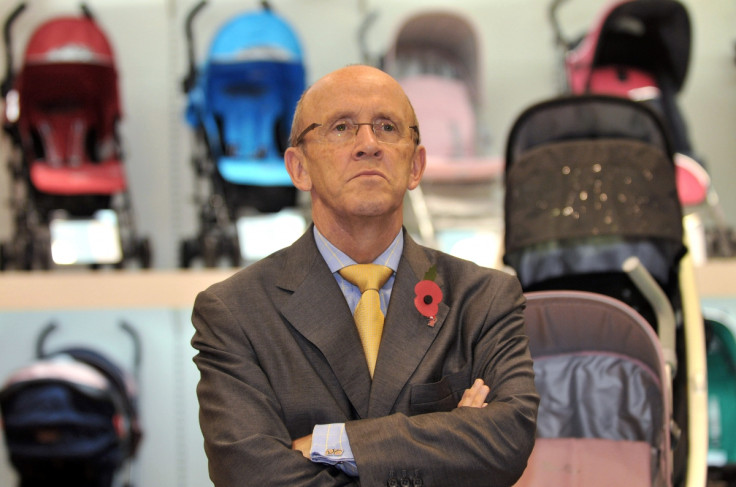Women on boards: Lord Davies says quotas are dead and introduces new 33% target by 2020

Lord Mervyn Davies, the chair of the women on boards review, has said that board quotas for gender equality are "dead". The former trade minister said that targets are the way to go to achieve more diversity on the boards of big companies during an event to celebrate the achievement of 25% of women on boards of FTSE 100 companies.
"I think quotas are dead," he told IBTimes UK at the launch event. "We should move on. We're fixing the problem, we're fixing the boards. We're going to focus on the executives and making sure there is a major social and cultural change in business and the UK and we will fix it without quotas."
At the event, Davies and women and equality minister Nicky Morgan announced the launch of a new review, which should set the target of women on boards at 33% by 2020. This movement should, however, be led by businesses rather than strict rules from the government.
Davies said that, since the review was launched by the government in 2011, there has been a great cooperation across the board between businesses, parliament and the media. He also said that, when the targets are set for businesses rather than quotas, there is more diversity in terms of the women who join boards.
"What is interesting, is that, when you look at the gene pool, in some countries that use quotas, it is a small group of women who get to these executive positions," he said. "The great thing about what's happening in the UK is that so many women have never served on a board before, and they come from a diverse background, that's the way to fix it, it is not quotas." Jokingly, he concluded: "However, the threat of quotas, has been a very interesting tool."
Quotas to force businesses to employ women in more senior positions were introduced in Norway in 2006, and have proven successful across a variety of businesses. Although less strict, Belgium, Italy, the Netherlands, Iceland and Spain have since followed suit, causing the EU to consider a 30% compulsory quota for its member states.
I think quotas are dead. We should move on. We're fixing the problem, we're fixing the boards and we will fix it without quotas.
However, some have criticised the measure, saying that it would cause companies to employ women for their gender rather than because of their talent. Morgan also said that women "do not want to be treated differently, and do not want to be seen as window dressing".
Some have criticised FTSE 350 firms for purposely appointing women as non-executive board members, and Davies and Morgan said that the movement should now focus on increasing the ratio of female to male executives.
Lady Barbara Judge, the first female president of the Institute of Directors, said that the new target will help achieve gender equality among executives rather than just company boards. "The new 33% target ... is a new challenge which once again shows the importance of focusing on the executive level," she said.
"Less than one in 10 executive directorships in the FTSE 100 are held by women, so we must not lose focus on getting women into executive and decision-making roles, as well as non-executive ones."
Bottom up
During the event, which looked ahead to hike the proportion of women on the boards of FTSE 350 companies, campaigners from the Davies review as well as the 30% club underlined the importance of urging chief executives rather than chairs to generate change.
Davies even said that the movement for more equal and diverse boards and workplaces should come from the bottom to the top, rather than the top-down approach previously used. He urged employees to research the equality record of the company they are applying for and said investors should take the lead.
"Why have investors been asleep at the wheel?" he asked while chairing a panel. "They have shown close to zero interest in the matter". According to Davies, investors should use their power to take a zero tolerance stance on inequality in the business world and even consumers should look into where they get their products and services from.
© Copyright IBTimes 2025. All rights reserved.






















